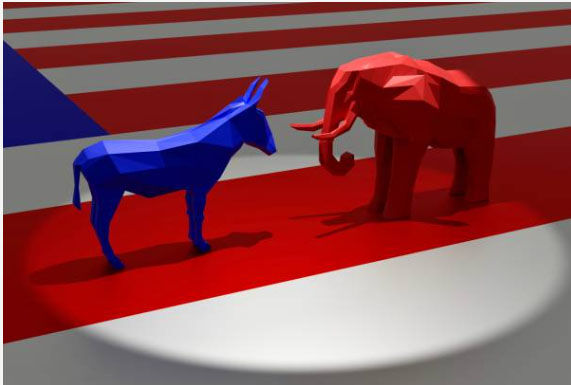Jimmy Carter, R.I.P. | SLOAN

Kelly Sloan
At 83, George Will still possesses a level of syntactic skill sufficient to generate a combination of professional admiration and envy among us lesser writers. Here is how he piquantly summed up the presidency of Jimmy Carter: “Jimmy Carter’s melancholy fate was to be a largely derivative figure: He was a reaction against his elected predecessor and the precursor of his successor. Richard Nixon made Carter tempting; Carter made Ronald Reagan necessary.”
Carter passed away last weekend, at the great age of 100, joining Rosalynn, his wife of 77 years, who predeceased him by a little more than a year. Will’s analysis is as accurate as it is succinct. Carter narrowly beat Gerald Ford in 1976, voted in by an electorate reeling from the convulsions of the Vietnam War and Watergate, and which yearned for the serenity they hoped a decent, quiet man in the White House could provide. Unfortunately, the moment in history called for more than that.
History has not been particularly kind to the Carter presidency, and not without good reason; the four years of his term, 1976-1980, were a rather rough time for the U.S.A., and is not a period looked back on with a great deal of fondness. Crime was rampant, inflation high, the Russians were invading their neighbors; Plus ça change…
Stay up to speed: Sign up for daily opinion in your inbox Monday-Friday
But like most things, it was a little more complicated than the conventional wisdom holds, and in fact, some good came out of the Carter administration: for instance, he (eventually) pursued a fairly aggressive deregulatory programme, including natural gas, trucking, railroads and the airlines. He (also eventually) took a harder line on the Soviets and advocated for an increase in defense spending, apparently having rediscovered a fear of communism which, a few years prior, he had told everyone was “inordinate”; he (yes, eventually) came to grips with the crippling inflation choking the economy and installed Paul Volker as Fed chairman. And of course, there was his crowning achievement, brokering peace between Israel and Egypt, a peace which holds to this day.
Nevertheless, it is inescapable that much of this good was overshadowed by the bad, and by any reasonable and objective metric his presidency was a failure. It’s true he inherited a lot of the problems — inflation was a result of Keynesian economic policies of Lyndon Johnson and Richard Nixon, and the promiscuous spending of successive Democratic congresses; the gas lines that were a fixture of American society in the 1970s were a result of the oil shock of 1973 and ineffectual policy toward OPEC; and the foolish naivete of détente coupled with the abandonment of Vietnam encouraged Soviet expansionism in every corner of the globe well before Carter was sworn in.
The problem was Carter was ill-equipped to effectively handle any of it. Most of the good decisions he did make (Volker, deregulation, defense spending) took place late in the second half of his term, and were viewed as too little, too late to save his presidency. Inflation grew under his first Fed Chairman, G. William Miller, and was then coupled with recession (something the Keynesians told everyone couldn’t happen) introducing the word “stagflation” into the national lexicon. A naturally humble man, he lacked the singular power of personality to get done what was needed. He was harried from the left wing of his party, particularly by Teddy Kennedy and the crop of young post-Watergate ultra-liberals in congress, who stymied much of his agenda and eventually wore him down.
Then came the fall of the Shah in Iran, and the establishment of a virulently anti-American regime led by Ayatollah Khomeini, who promptly had 53 Americans taken hostage. The Desert One mission Carter authorized to rescue them was a legendary disaster, probably the final straw on an already doomed presidency. Carter perhaps delivered his administration’s obituary in the 1979 televised “national malaise” speech (Carter never actually used that phrase) in which he broodingly lectured the American people about their “crisis of confidence.”
It has been suggested Carter was a better post-president than president (much as was said of British Prime Minister James Callaghan) and indeed his humanitarian efforts in Africa and elsewhere, and his staunch support for Habitat for Humanity, do him great honor. But if his presidency was perhaps a touch over-maligned, his 44-year post-presidency may be rather overrated; his meddling in foreign affairs, particularly North Korea and the middle east, fueled by a leftward drift in his later years, has been unhelpful, to put it charitably. His embrace of terrorists like Yassar Arafat, and his seemingly blind hatred for Israel, have been especially distasteful.
History, fairly or not, will judge Jimmy Carter for four years out of the 100 he lived, four years in which a good, decent man was out of his depth, and did his best in a job which called for more. Jimmy Carter had his flaws, but this fellow sinner hopes God will judge him not so narrowly, and grant him a place of refreshing coolness, light and peace alongside his beloved Rosalynn.
Kelly Sloan is a political and public affairs consultant and a recovering journalist based in Denver.











